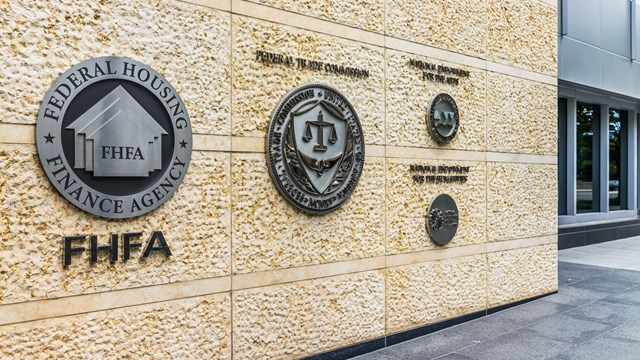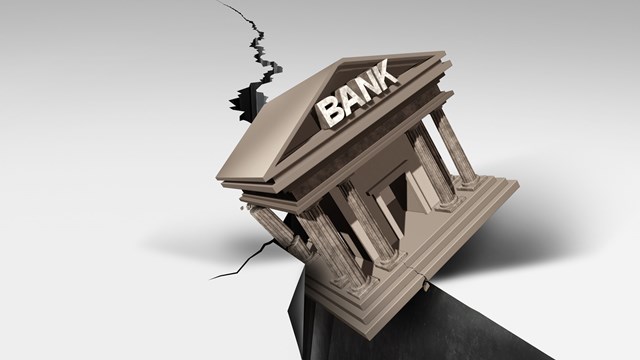Is a co-op or condo owner, protecting your building's financial stability is of paramount importance in
maintaining the value of your investment and your quality of life. As stories of mismanagement and fraud continue to come to light, boards are well advised to institute a workable system of financial checks and balances for their properties. There needs to be someone looking at the management report every month, making sure that there are funds available for operating expenses, capital improvements, etc., and determining how to invest the property's funds, says Carole Newman of Prisand-Newman, one of the city's most active co-op and condo accounting firms.
Make sure you're paying only for what you get, and paying only your own bills, advises Mark Shernicoff, treasurer of the Council of New York Cooperatives and a partner in the accounting firm of Zucker & Shernicoff, which represents over 100 co-op and condo buildings. Mistakes happen. But if you pay Con Ed twice, you'll get credited for an overpayment, while if you pay Joe Blow the repairman twice, you may not.
At the Dorchester, a 108-unit co-op at 110 East 57th Street in Manhattan, A designated board member periodically reviews the building's checking account, says board president Elizabeth Whitcomb Brown. All board members read and review the monthly management financial report, one board member is given every bill for approval before payment, and at least two board members control the bidding on large jobs and unusual expenses.
The board should establish rules that are implemented by the managing agent, advises Richard Montanye of Marin and Montanye, an accounting firm that represents hundreds of co-ops and condos. Any departures from board mandated policies must be noted.
Newman agrees: Policies should be written out so that everyone has a clear understanding of how the property's finances function.
Bidding and Purchasing Procedures
When it comes to large contracting projects, solicit at least three closed, competitive bids. Establish price guidelines and parameters, recommends Bruce Cholst, senior attorney at Rosen & Livingston. Boards should have multiple sources for all bids, not only from the managing agent but from a list compiled by the board or property volunteers. Boards should insist that all bids be receivedunopenedby a deadline, and that they are unsealed in the presence of more than two people. It's also a good idea to regularly bid out service contracts and capital and supply contracts to get the best service at the best price.
When it come to purchasing smaller items, you can get nickel and dimed to death, says Shernicoff. Boards can institute a purchase order system, where things don't get purchased without board approval.
A competitive list of prices and purchase discounts available for supplies should be established, advises Montanye. A list of regular recurring repairs should be established, as well as related flat rates charged by various repair companies.
The Monthly Management Report
In order to keep track of the building's income, disbursements and investments, boards must have reliable, easy-to-read and timely reports. I tell my clients to insist on a management report that contains a cash flow reconciliation for each bank account; clear explanations for every line item on the budget ffb and every element of income as well as disbursements; a breakdown of the amount spent and a comparison year to date; a comparison of last year to date; a comparison of each line item and income item of the same corresponding month last year; and, for pro-rated payments, a clear explanation of whether or not the appropriate proportion has been paid on time, says Cholst.
I also like to see lists of each payment individually by payee, date, reason, and amount paid, balance due, and the date of the invoice. The management report should contain a list of all checks issued by number, date, amount, and vendor. And most important, management should supply to the board back-up copies of the invoices or purchase orders, delivery receipts and payment receipts, canceled checks, and bank statements, Cholst continues. There should also be a log of all building and apartment repairs with a special emphasis on emergency repairs. Boards should know the nature of the repair, who and how many people did the repair and how long they were there, and whether or not any attempt was made to get board approval before the repair was made. This way, if there are questions, you know where to focus.
Setting & Monitoring the Budget
A comprehensive budget is essential to financial stability. Establish a well-thought-out and detailed budget, broken out among operating expenses and major expenditures such as capital improvements and repairs, advises Thomas Marcosson, president of 2 Fifth Avenue, a 340-unit co-op in Greenwich Village. It should be realistic and detailed. That's the key, because you need something to compare your numbers to.
The budget should be included in the monthly management report and reviewed to determine which items are exceeding expectations and where a surplus or deficit exists, says Montanye. Contingencies must also be provided. And a work order system should be established for work done in individual apartments to insure that the work was done satisfactorily, in accordance with standards established by the board, and that the repair was billed to the resident, if appropriate.
A usually overlooked aspect of expense monitoring is staff timekeeping. How do you know the people are really there? asks board president Marcosson. The potential for abuse does exist. The board must take an active role in personnel practices and not leave it to the managing agent.
Boards may choose to follow the practice of Herb Stratton, board president at 300 West 23rd Street, who personally reviews the financial activity of the 220-unit co-op in a weekly meeting with the superintendent and managing agent specifically for the purpose of monitoring expenses and staff performance.
Regular Review By Board & Pro's
While properties engage a professional accountant to compile the year-end report and maybe a six-month interim report, If we come in quarterly, we can catch things early, says Stephen Beer of Czarnowski & Beer, a Manhattan accounting firm active in the co-op and condo community.
There has to be regularat least quarterlyreview by an independent CPA comparing the budget and actuals, and giving comprehensive variance analysis, says Marcosson. It doesn't have to be a full audit quarterly, but there should be independent review so you can see where you're going away from budget and where you're not.
And Carole Newman reminds board members that they should retain their property's professionals through their own interview process, and not necessarily just agree to any recommendation from the management company. But Bruce Cholst adds, There are things only board members can know. For example, auditors can't know if a line item indicates an item that's not used in the building, such as window handles or a certain kind of light bulb. That's why board participation is so important.
Boards should also take a hands-on approach to their banking relationship. I can't tell you how many boards have been held hostage by management companies that are the sole signatories on the property's accounts, relates Beer ab5 . Boards must have bank signatory rights, and have the monthly bank statements sent to a board member so that someone else besides the managing agent will see the transactions.
Marleen Levi, president of her 75-unit Brooklyn co-op, recommends that boards be especially vigilant about delinquent and/or partial payment of maintenance fees or common charges, delays in issuing invoices, potential or impending sponsor default, and any change in management and/or sponsor status that would affect residents' payment response time or payment delivery to the property.
Ms. Dershowitz is a Contributing Editor to The New York Cooperator.







Comments
Leave a Comment